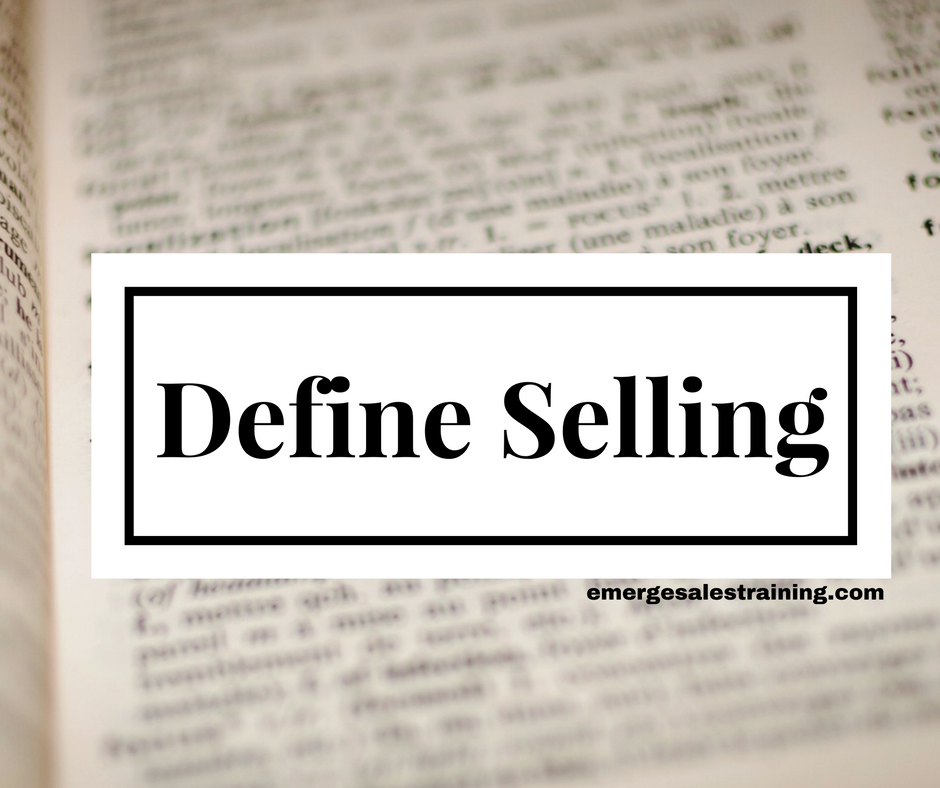[powerpress]
Selling is icky, right?
Or is it?
“We don’t sell, we share.” I hear this all the time from people when I talk about learning how to sell. They are so offended and afraid that I insist that network marketers need to learn how to sell.
But have you noticed that telling your story doesn’t help you run a successful business? Have you noticed that handing out samples and following up is costing you money, and leading to everyone feeling awkward because you have to keep calling them? Have you noticed that while a couple people here and there might be intrigued and approach you because of your swag, it’s not enough to even pay for your own products?
With the negative perception of sales so pervasive in the industry, the world, or women’s circles, it is any surprise that so many people have issues with being successful in the network marketing business?
I am a proud salesperson. This is because I know who I am, I know what I do, and most importantly, I know what I don’t do. I give people hope because when they work with me, they can see that they can do it, and their results go up. But I never push. I never encourage someone to spend money they don’t have. I never tell someone I can help them if I can’t.
Are you this clear on what you do and don’t do?
You may have heard people say, “everything is sales” and might be rolling your eyes right now.
So that’s not exactly right, at least according to Webster.
The definition of “sell” is to “exchange something for money.”
You do that right?
So let’s not get dramatic about the ideas of what “selling” is.
Glengarry Glen Ross is remembered because it was so over the top it’s been etched in pop culture history. Sensational sales stories get a lot of gossip time, and I do it as well. Whatever we talk about, we believe. And so the self-fulfilling prophecy ensues.
The truth is, most sales are forgettable. I would love to think that the 300ish Cutco customers were so moved by our experience that they still talk about me over a decade later. They don’t. This means I did my job properly.
I’m going to give you my definition of sales, and selling, which is to “effectively explain the value of your product as it relates to solving the customer’s problem, or helping them reach their goal. Then motivating the customer to solve the problem or reach the goal as soon as possible.”
Nowhere in that definition is all of the folklore about “don’t take no for an answer” or “ABC always be closing” or whatever else is in your head. Many times these quotes are taken out of context.
Really all you are doing is learning about people, explaining your products in a way that makes it clear how it will help them with their desired outcome, and then asking them to move forward. “No” is ok, and is just part of life.
There are three types of salespeople out there.
The first is the one you think of first, which is the selfish, manipulative, sell at all costs person.
And you don’t want to be known as that person. So don’t be that person. It’s quite unlikely that you are. Most people are pretty perceptive and can tell if someone is a jerk or if they are genuine from the get go. Spend less time trying not to be this person, and just be you. I’m willing to bet you have friends and relationships that are good, and that you like people. You might be shy, or tongue-tied and that’s all fine. This is very small percentage of the population, and every profession has unethical people in it. The current Consumer Reports cover story is about unethical doctors who sell pain pills and grope patients. Does that mean that you shouldn’t be proud of the lives you save if you are an ethical doctor?
The second person is the untrained salesperson.
They just don’t know what they are doing or saying. This person is typically the one who says, “I’m not a salesperson” so they don’t pursue the skills of their trade. They are still exchanging something for money so they are in quite the pickle. Sometimes they are in denial, or attach meaning that doesn’t need to be added to things. Learning new things is hard. I know most of us like to learn new things in concept, like cool facts or tidbits. But a new skill? It means that you need to admit you don’t know anything. My daughters do karate, and I not so secretly want to as well. I think their sensei is awesome and a total bad ass. So what holds me back? It’s the time. It’s the extra money out of our budget. It’s the… um… Ok the reality is that I’m usually good at stuff.” I’m not used to starting at the bottom. And when I start karate I have to start from the very whitest of belts. And that stinks and I hate that. So I make up reasons not to learn.
Acknowledging that we don’t know everything is hard, and I struggle with it every day. Another thing about learning is that everything is hard at first, until it’s not. Maybe I’m giving myself my own pep talk right now. When you learn a new skill you have to try, mess up, try again, mess up, and maybe it will work the third time when you are more comfortable. But we don’t even get that far.
Sometimes though, the untrained salesperson will accidentally say things that the manipulative person will say, because they think that is how they are “supposed to be.”
There is a self-fulfilling prophecy here. Let’s say I don’t want people to think I’m selfish. So I don’t ask someone, “do you want to get that kit so you can start solving your problem right away.” But in not saying the truth because I’m afraid of what they will think of me, I am in fact being selfish. See how that works?
The third person is the trusted advisor.
They tell the truth, always. They care more about the person they are serving than about the sale. And the weird thing is, they make more sales. They are a professional, which simply means they are experts in asking the right questions, listening, and explaining things clearly and concisely. This is when people say, “you HAVE to talk to Tasha.” Because you know your ish.
I’m willing to bet that your overall goal is to earn an income to support your family. Most professionals have required professional development hours right? And education to prepare them. Teachers in California need five years. Lawyers need seven years. Doctors need eight years and a three year internship. All require professional development hours and a high level of expertise. If you want to earn income like a professional, learn the skills to be a trusted advisor.
This is who we aspire to be right?
The first step is to acknowledge that helping a person get a product or service that will help their life is noble. Your willingness to put yourself out there and experience “no” is the reason so many people have jobs making your product and working with the backend.
The second step is to start becoming an expert in communication. Often, your customers just don’t know. Maybe they have never heard about your product, so you have to present learning about the product in an appealing way. Perhaps your customer can’t on their own connect the dots on how your product will help them. Some people just aren’t wired that way. Help them connect the dots through your communication skills. If everything makes sense, find an option that best solves their problem and they are comfortable with. It totally stinks being a white belt sometimes.
Now that we have our head’s on straight, I’m really excited to tell you about next week’s podcast. I recorded a sample appointment for you, and I’ll play it for you next week. It’s been 33 episodes and I’ve given you lots of tidbits and next week you will be able to hear them all together. Be sure to share the podcast with your team so they can subscribe and have that one at the ready next Wednesday morning.

